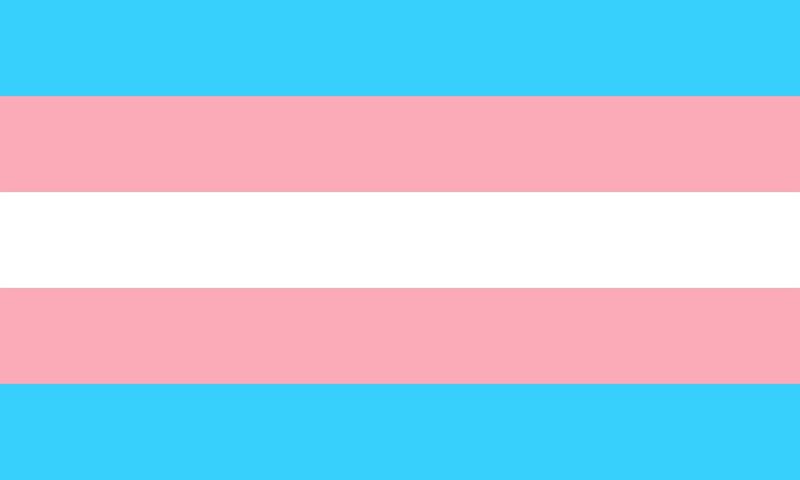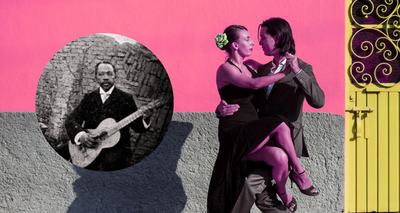This past year has been a tough one for almost everyone. But, when it comes to trans rights and recognition, we can find a silver lining. Actors, politicians, writers, news anchors, sworn lawyers: key transgender figures in Latin America and the United States are getting access to previously-denied positions. These major achievements come with visibility and power, both of which might open doors to many more trans behind them. Even if violence against this minority continues to rise, especially in Latin America. These are some of the major landmarks that have been reached during this year of the trans:
Trans writer wins major literary prize
In early November this year, trans Argentinian writer Camila Sosa Villada was awarded the Sor Juana Inés de la Cruz literary prize for her novel Las malas, in which she narrates a semi-fictionalized version of her life experiences. The Sor Juana prize is granted every year to a published Spanish novel from Latin America or the Caribbean. This Mexican-based award has been running since 1993 and it gives its winner $10,000 —more than 4 times an average annual salary from Argentina! Giving such an important (and well-earned) acknowledgement to a trans author could certainly impact positively the community’s inclusion in the literary world.
«Una obra sobresaliente, cargada de lirismo, rabia y redención». Palabras del jurado de la @FILGuadalajara.
En @el_pais Mar Centenera escribe sobre el Premio de Literatura Sor Juana Inés de la Cruz concedido a Camila Sosa por su obra #LasMalas. https://t.co/0dPFbcQo6F @minimono pic.twitter.com/OmU30RvLn7
— Tusquets Editores (@TusquetsEditor) November 3, 2020
First transgender lawyer in Paraguay
As Agencia Presentes reported, Kimberly Ayala became the first trans lawyer in Paraguay, also in early November, 2020. As it usually happens with transgender people, she had it much harder than her cisgender counterparts: Ayala had to request to be sworn three times before being granted her constitutional right to do so before Paraguay’s Supreme Court, 5 years after her graduation.
US elections: first-ever trans representatives and lawmakers
Recent US elections were packed with historic “firsts”, starting with Kamala Harris being the first ever woman of colour VP. But the election results also turned into never-seen achievements for the trans community: in Delaware, Sarah McBride was elected state senator; in Vermont, Taylor Small was elected to the House of Representatives; in Kansas, Stephanie Byers was the first transgender POC to win a seat in a state legislature; in Oklahoma, Mauree Turner was the first nonbinary candidate to be elected to a state legislature; in Washington County, Evelyn Rios Stafford became the first transgender elected official in the history of Arkansas.
Trans rights move forward in Jalisco, Mexico
In the Mexican state of Jalisco, during last October, the local government officialized the legal acknowledgment of trans identities, including children and teenagers!
Hoy dimos un paso decisivo para la construcción de un #JaliscoDeIguales: a partir de ya, nuestro estado reconoce, con todas las de la ley, el derecho a la identidad de las personas trans.
— Enrique Alfaro (@EnriqueAlfaroR) October 30, 2020
First trans news anchors in Bolivia and Argentina
2020 was also the year in which 26-year-old Leonie Dorado became the first trans news anchor of Bolivia. She is the new co-host of Aby Ayala TV, where she covers LGBTQ issues. Earlier this year, something similar took place in Argentina, when 39-year-old Diana Zurco became the first transgender person to lead the news in the country’s public television.
The trans flag emoji is here!
On a lighter note, trans people now have their own emoji. While it’s not yet available on every platform and OS, you can enjoy the trans flag emoji on desktop Twitter, in full color! Far from being a less important topic, every-day details like this are painting this year light blue, white and pink ????️⚧️
damn i just saw apple finally gave us the trans flag emoji, hell yes gotta get this bitch to the top of the Frequently Useds 🏳️⚧️🏳️⚧️🏳️⚧️🏳️⚧️🏳️⚧️🏳️⚧️🏳️⚧️🏳️⚧️🏳️⚧️🏳️⚧️🏳️⚧️🏳️⚧️🏳️⚧️🏳️⚧️🏳️⚧️🏳️⚧️🏳️⚧️🏳️⚧️🏳️⚧️🏳️⚧️🏳️⚧️🏳️⚧️🏳️⚧️
— Pseudonym Jones (@pseudonymjones) November 24, 2020
Actor Elliot Page comes out as trans
“Hi friends, I want to share with you that I am trans.” These are the first words of the coming-out publication by actor Elliot Page, known for his work in Juno (2007) and Inception (2010), and the Netflix series The Umbrella Academy (2019). With this, December 2020 closes an exceptional year for trans-visibility, now giving the trans-masculine community its first worldly-renown celebrity.
But… violence against the trans community continues to rise
As stats from Trans Respect show, at least 350 trans people have been murdered worldwide during the last year. Unfortunately, this represents a 6% increase from the 2019 numbers. As Elliot Page stressed in his publication above and as it is shown in the stats, the groups that were more significantly impacted were Black and Latinx trans women. And, sadly, 82% of all the murders happened in Central and South America. So, even if visibility and positions of power are being opened to the trans community, we still have a long way to go.
Let’s make 2021 even better!
Want to collaborate with the Latinx trans community? We’ve gathered some links to NGOs and organizations dedicated to improving the lives of trans people across the Americas. Follow, support and donate!
- TransLatin@ Coalition (United States)
- GATE (United States)
- Nos cuidamos entre todes (Argentina)
- Rede Trans (Brazil)
- Res Trébol (Bolivia)
- Bachillerato Popular Trans Mocha Celis (Argentina)
- Agencia Presentes (Argentina)
- Que Sí Te Importe petition (Latin America)
- Panamby (Paraguay)
- Attta (Argentina)
- Red Comunitaria Trans (Colombia)
- TransVida (Costa Rica)
- Otrans (Guatemala)






